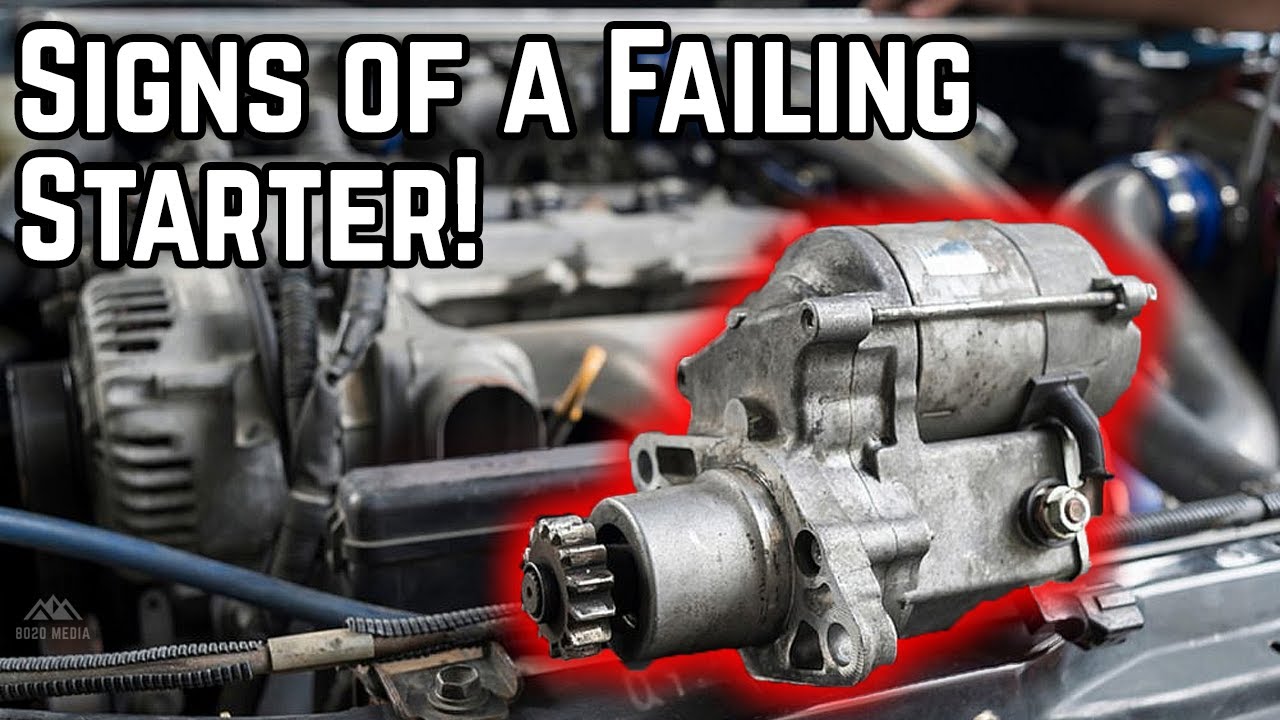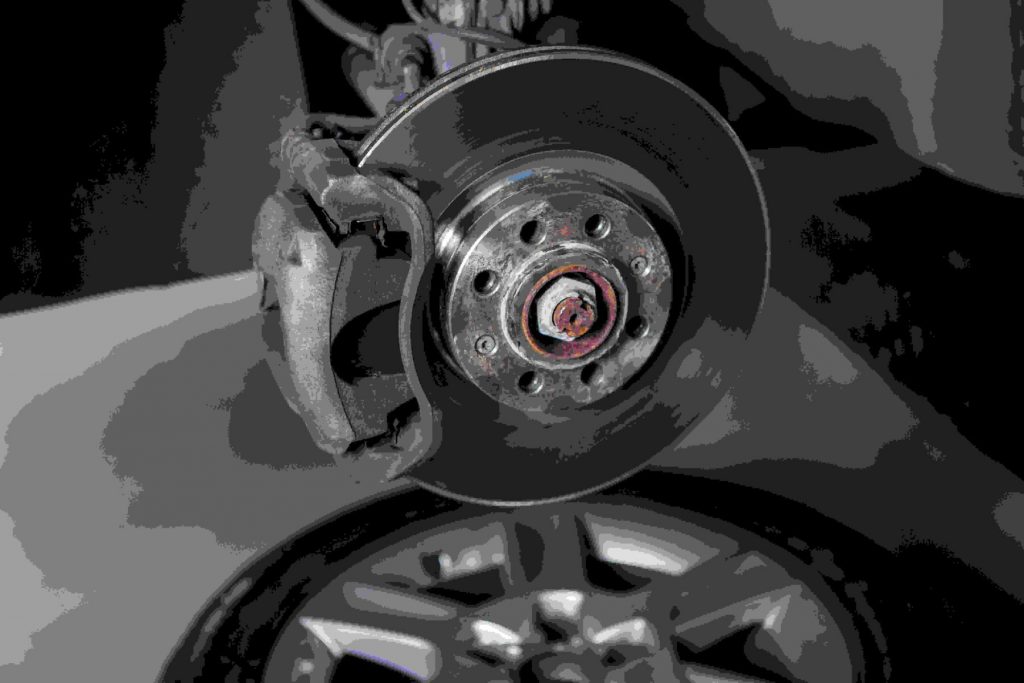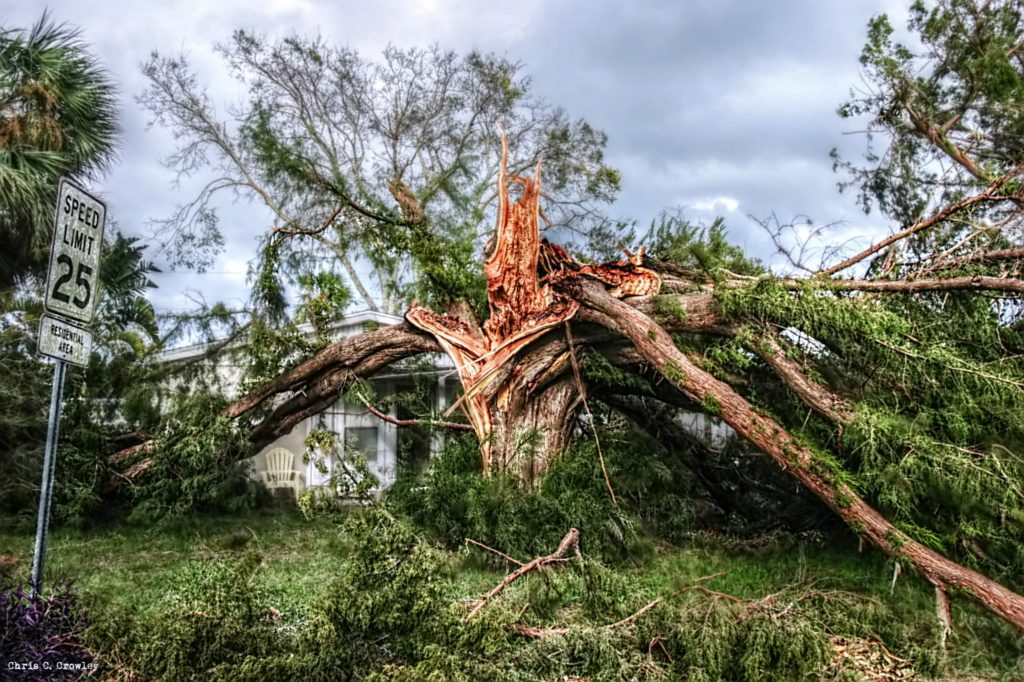Car not starting on a busy Sharjah morning can be a nightmare. Often, the culprit is a failing starter motor, a critical component that turns your engine over when you turn the key. At Burj Malabar Auto Maintenance, we frequently assist drivers with starter issues, and we know catching the warning signs early can save you from getting stranded. In this guide, we explain what a starter does, the common signs of a bad starter, and how to tell starter problems apart from other issues. By the end, you’ll know exactly what to watch out for and when to seek help from our team.
Understanding Your Car’s Starter
The starter is a small electrical motor (with a gear) mounted to the engine. Its job is straightforward: when you turn the ignition key or push the start button, the starter motor engages and cranks the engine to get it running. It uses power from the battery to spin the engine’s crankshaft via the starter’s gear (which meshes with the engine’s flywheel). Once the engine fires up, the starter’s job is done – it disengages and the engine runs on its own power.
Like any mechanical part, starters wear out over time. After years of use (or due to other factors like heat or electrical issues), the starter can develop problems. For instance, excessive heat can cause internal components to wear faster, and electrical faults (corroded wires, a bad solenoid, etc.) can prevent the starter from doing its job. In Sharjah’s hot climate, heat and dust can take a toll on many car components – starters included. Knowing how the starter works is half the battle; next, we’ll cover the tell-tale signs that your starter might be failing.
Common Signs and Symptoms of a Bad Starter
How can you tell if your starter is going bad? Pay attention to these signs and symptoms, especially if they happen consistently. Often, these symptoms are your car’s way of telling you the starter needs attention:
- Clicking Sound When Turning the Key: A single, loud click each time you turn the key (or push start) with no engine crank is a classic sign of starter trouble. This usually means the starter solenoid is trying to engage but the starter motor isn’t spinning. You might hear one solid click and then nothing. (By contrast, if you hear rapid multiple clicks, that often points to a weak battery instead of the starter.) A repetitive clicking without engine start indicates the starter isn’t getting enough power or is failing to turn the engine – time to have it inspected.
- Engine Cranks Slowly or Struggles to Start: If the engine turns over very slowly and sounds labored, your starter might be struggling. A healthy engine crank should be strong and brisk. Sluggish cranking can mean the starter motor is worn out or its internal parts are binding. (Note: A weak battery can also cause slow cranking, so rule out the battery first. But if a new or charged battery still cranks slow, the starter is a likely suspect.) Ignoring slow cranking can lead to the starter failing completely, leaving you with a car that won’t start at all.
- No Response When Turning the Key (Silence): You turn the key and nothing happens – no crank, perhaps not even a click – yet your dashboard lights and accessories come on normally. This scenario points squarely to a starter or starter circuit issue. Essentially, power is reaching the car (lights, radio, etc. work), but the starter motor isn’t engaging the engine. It can feel like total silence from under the hood. In many cases, this indicates the starter motor has failed or the starter relay/solenoid has a problem. (Ensure the vehicle is in Park or Neutral and that security/immobilizer systems aren’t preventing the start – but if those are fine, a non-cranking engine with good electrical power usually means a bad starter.)
- Grinding or Whirring Noise: If you hear a grinding noise when trying to start the car, it could mean the starter’s gear is worn or not engaging properly with the engine’s flywheel. A grinding sound is often compared to metal-on-metal contact and is a warning sign of starter problems. Similarly, a high-pitched whirring (like an electric motor spinning freely) can happen when the starter motor spins but fails to engage the engine. Both noises are abnormal – if you hear grinding or whirring at startup, have the starter checked promptly. Continued grinding can damage the flywheel in addition to the starter.
- Starter Soaked in Oil or Burning Smell: Sometimes a starter fails due to external factors. If an engine oil leak drips onto the starter, it can cause the starter to malfunction (oil can short out or gum up the starter). If you pop the hood and notice the starter is oil-soaked, it could explain recent starter issues and means both the leak and the starter need fixing. In severe cases of starter failure, you might even see smoke or a burning smell after repeated start attempts. Smoke indicates the starter motor is overheating – possibly from being engaged too long or an internal electrical short – and is a serious warning sign. If you ever smell electrical burning or see smoke, stop trying to start the car and seek assistance.
- Needing Frequent Jump-Starts: If you find yourself jump-starting the car often but the battery tests fine, the starter could be the underlying issue. Usually, repeated jump-starts point to a weak battery or bad alternator, but if those have been ruled out, a failing starter that intermittently works may be to blame. Essentially, the starter might sometimes draw too much power or fail to engage until extra current is provided. This is less common than the other symptoms, but we have seen cases at our shop where drivers assumed the battery was the problem, when in fact the starter motor was on its last legs.
Each of these symptoms on its own might not conclusively diagnose a bad starter, but if you notice two or more of these signs together, odds are high that the starter is the culprit. Next, we’ll discuss how to confirm it’s the starter and not another component in the starting system.
Is It the Starter or Something Else? (Starter vs. Battery)
Starter issues can sometimes be confused with a battery problem or other electrical faults, since all three (battery, starter, alternator) are interconnected in getting your car running. It’s important to differentiate them so you address the right issue:
- Battery vs Starter: A failing battery can mimic some starter failure symptoms. For example, a weak battery also causes slow cranking or clicking sounds. The key difference is in the electrical power available: if the battery is the issue, you’ll often notice other electrical components acting weak or dead (dim or no dash lights, no radio, etc.). If the starter is bad, typically you have full electric power (lights, radio work), but the engine won’t crank or you hear only clicks. The table below highlights some differences:
| Symptom | Likely Starter Issue | Likely Battery Issue |
|---|---|---|
| Strong lights, but no crank(dash lights and headlights are bright) | Yes – power is present, but starter isn’t cranking the engine. | Not likely – a bad battery usually can’t power lights strongly. |
| One loud click when turning key | Yes – often a sign the starter/solenoid tried to engage. | Possibly, but usually a bad battery gives rapid clicking or nothing at all. |
| Multiple rapid clicks, no start | Unlikely – rapid clicking is generally not the starter itself. | Yes – classic sign of a weak or dead battery unable to turn the starter. |
| Engine cranks very slowly | Possibly – starter could be dragging due to internal wear. | Yes – a weak battery will struggle to crank the engine at normal speed. |
| Jump-start helps the car start | No – if the starter is truly bad, a jump-start usually won’t enable cranking. | Yes – if the car starts with a jump, the battery was likely the issue (either discharged or bad). |
As shown above, electrical clues can help: bright lights and a single click point to the starter, while very weak or no lights point to the battery. Also, consider the age of each component – car batteries typically last 3-5 years (less in extreme heat), whereas starters last much longer but do eventually wear out.
- What About the Alternator? The alternator charges the battery when the engine is running. A failing alternator can cause your battery to drain (leading to start failures), but it usually shows signs like a battery warning light on the dashboard or dimming lights while driving. If your car won’t start and you suspect the alternator, a tell-tale sign is that the car starts with a jump but then dies soon after. That’s because the alternator isn’t keeping the car powered once the jumper cables are removed. In a no-start situation, check the battery first, then the starter. If the battery and starter both check out, the alternator could be indirectly causing the issue by not charging the battery. Our technicians in Sharjah perform a comprehensive charging system test (battery, starter, alternator) to pinpoint the exact cause of starting problems.
One quick way to narrow down the issue is a jump-start test. Use jumper cables or a booster pack to jump-start the car:
- If the engine starts with a jump and keeps running afterward, the battery was likely weak or dead (the starter itself is fine).
- If the engine starts with a jump but dies again as soon as you disconnect the jumper, the alternator isn’t charging the system.
- If the car still doesn’t start even with a jump, the starter is probably bad – it’s not turning the engine despite having power.
By observing these differences in symptoms, you can get a good idea of whether it’s the starter at fault or another part of the starting system. However, a proper diagnostic by professionals (using tools to test battery health, starter draw, etc.) is the most reliable way to confirm the issue.
Keeping Your Starter and Car Reliable
A healthy starter means your car fires up reliably every time – a peace of mind every driver appreciates, especially in the busy streets of Sharjah. Recognizing the signs of a bad starter (like strange clicks, grinding noises, or no-crank situations) will help you take action before you end up stranded. If you notice these warning signs, don’t ignore them. Sometimes a failing starter can also strain your battery or leave you searching for jump-starts at the worst times.
At Burj Malabar Auto Maintenance, we’re here to help diagnose and fix starter problems quickly for drivers across Sharjah. Our team will test your battery, starter, and alternator to zero in on the issue and get your vehicle starting smoothly again. Remember, addressing starter issues early can prevent other headaches – and it ensures your car remains dependable. Stay alert to the symptoms, and you’ll spot a bad starter before it leaves you stuck. Safe driving, and rest assured that if your car won’t start, we’ve got you covered with prompt, professional service.



